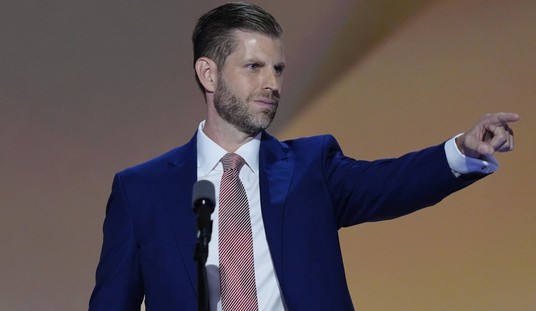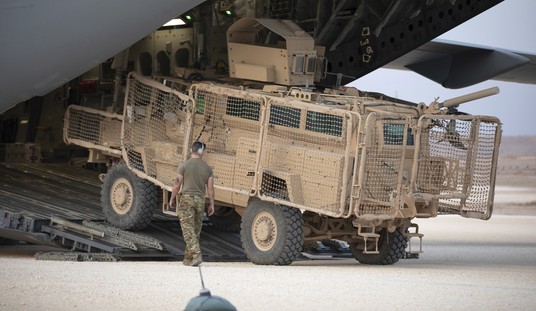Almost everything you read about the “increasing tension” between Iran and the United States revolves around the rhetorical question, “will there be a war?” Whether it’s our own pundits or the Europeans who watch us, “war” seems closer every day. Look at the Guardian’s Simon Tisdall, for example:
This is how wars start, through a process of hostile rhetoric, mutual ignorance and chronic miscalculation. Anybody in Tehran following the impassioned US debate on Iran will be aware that an influential Washington constituency, aided and abetted by leading Republican presidential candidates Mitt Romney and Newt Gingrich, favours military action sooner rather than later. For these American hardliners, it is no longer merely a question of destroying Iran’s suspected nuclear facilities. Regime change is the name of the game because, it is argued, that is the only way to ensure Iran never gets the bomb.
If Mr. Tisdall knew as much about American politics as he should, he wouldn’t have credited Romney and Gingrich with the notion that “regime change is the only way to ensure Iran never gets the bomb.” That actually comes from the editorialists at the Washington Post. And if he knew as much about the origins of war as he should, he’d pay more attention to the Iranians’ messianic vision of global power — the quest for power being the central element in a nation’s decision to go to war, as the great historian Donald Kagan writes in his magisterial On the Origins of War.
But no matter, Tisdall is certainly right to say that war talk is abundant nowadays, in Washington and Tehran. And it often includes Israel, as well. It’s a depressing spectacle, because the pundits have systematically blinded themselves to the real context in which current events are unfolding, and this deflects otherwise serious people from thinking about the real world, which in turn means we do not have a serious strategy.
Serious thinking, and a serious strategy, must begin with the fact that the war is on. To repeat: the war is on. It’s been on for three decades. Ayatollah Khomeini declared war on the United States in February, 1979, and the leaders of the Islamic Republic of Iran have been killing Americans ever since.
When they demonstrate in the streets and chant “Death to America!” what do you think they mean?
When they call us the “Great Satan,” do you think that’s the opening gambit in a negotiation to “normalize relations”? Iran and the United States had very warm relations before the 1979 Revolution, after all. The Carter administration desperately sought warm relations with Khomeini et. al.
The Iranian regime was not interested then, and there is no good reason to believe they are interested now. Yes, from time to time they are prepared to execute tactical retreats, but their war against us continues, yesterday in Lebanon, Iraq, Saudi Arabia, Kenya, Tanzania and Somalia, today in Afghanistan and throughout Africa (if our experts look carefully, they will see the Iranian claw at work in Nigeria, for example), and tomorrow in Latin America and within the homeland, in tandem with their friends in Cuba, Venezuela, Bolivia, and others.
To date, we have had various documented responses. On the battlefield, we have defended ourselves against Iranian-trained and -equipped terrorists and their IEDs and EFPs. We have spent billions of dollars to try to thwart or mitigate the effects of these “roadside bombs.” As a visit to a military hospital will demonstrate, we continue to see terribly maimed soldiers and Marines under medical treatment, so, while we have made some progress, this remains a very real problem.
Despite the oft-repeated mantra that Iran operates through proxies, in Iraq and Afghanistan they sent the Revolutionary Guards’ foreign legion — aka the Quds Force — to kill our guys. By the end of the fighting in Iraq we had hundreds of them in military detention centers. And sent them all back, via the Iraqi government, as part of the Status of Forces Agreement. Cynics call this “the catch and release policy.”
Then there are the sanctions. Sanctions are a good thing, for several reasons. First and foremost, they send a message to the Iranian people, they show that we do not like the regime, that one of the reasons for the sanctions is the evil repression of most Iranians, and that we are acting to punish the regime. Fine.
Second, the sanctions bleed the regime, even if they find ways to elude sanctions’ bite. It costs them money, which means they have less to spend on terror and on the nuclear weapons program. Khamenei has apparently had to cut back on support for Hamas, which is certainly a good thing.
But I don’t know anyone this side of the White House who believes that sanctions, by themselves, will produce what we should want above all: the fall of the Tehran regime that is the core of the war against us. To accomplish that, we need more than sanctions; we need a strategy for regime change.
There are people in Washington who found a way to facilitate regime change in the Soviet Empire, and if our leaders were serious about winning the war, they’d be studying just how that happened. But instead, at least from the outside, it looks like they are looking at the “problem that doesn’t exist,” namely how to go to “war” against Iran.
It may well be, as some have suggested, that in fact we are fighting…a secret war against the Tehran regime. A long essay in the New York Times Sunday Magazine says just that (while insisting that most of the action is being carried out by Israel’s Mossad, not our spooks). I’m prepared to believe at least some of that (Stuxnet and other acts of sabotage against the nuclear program, for example, and perhaps some of the assassinations of key figures in the program). But a lot of the action is domestic, it’s being carried out by Iranians — so far as I know without any foreign assistance — who sabotage pipelines and aircraft, and blow up Revolutionary Guards bases.
But even if all these are guided from Washington and/or Jerusalem, it still does not add up to a war-winning strategy, which requires a clearly stated mission from our maximum leaders. We need a president who will say “Khamenei and Ahmadinejad must go.” He must say it publicly, and he must say it privately to our military, to our diplomats, and to the intelligence community.
Without that commitment, without that mission — and it’s hard to imagine it, isn’t it? — we’ll continue to spin our wheels, mostly playing defense, sometimes enacting new sanctions, sometimes wrecking the mullahs’ centrifuges, forever hoping that the mullahs will make a deal. Until the day when one of those Iranian schemes to kill even more Americans works out, and we actually catch them in the act. Then our leaders will say “we must go to war.”
But we’ve been there all along. It’s just that we refused to see it.









Join the conversation as a VIP Member